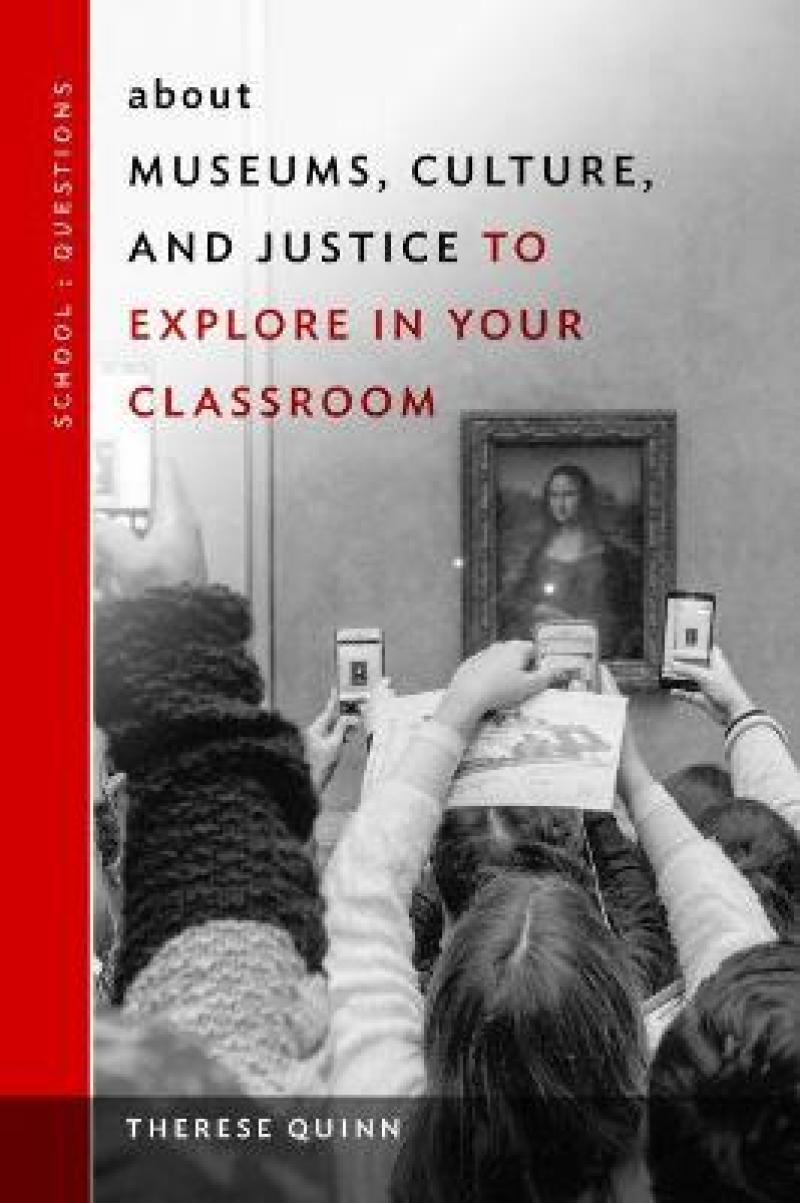Museums are public resources that can offer rich extensions to classroom educational experiences from tours through botanical gardens to searching for family records in the archives of a local historical society. With clarity and a touch of humor, Quinn presents ideas and examples of ways that teachers can use museums to support student exploration while also teaching for social justice. Topics include disability and welcoming all bodies, celebrating queer people's lives and histories, settler colonialism and decolonization, fair workplaces, Indigenous knowledge, and much more. This practical resource invites classroom teachers to rethink how and why they are bringing students to museums and suggests projects for creating rich museum-based learning opportunities across an array of subject areas.
Book Features:
- Links museums, classroom teaching, and social movements for justice.
- Focuses on the cultural contributions of people of color, women, and other marginalized groups.
- Organized around probing questions connecting history and contemporary events, museum formats and content, and activities.
- Includes pull-out themes and resources for further reading.
Les mer
Presents ideas and examples of ways that teachers can use museums to support student exploration while also teaching for social justice. This practical resource invites teachers to rethink how and why they are bringing students to museums and suggests projects for creating rich museum-based learning opportunities across an array of subject areas.
Les mer
- Singing in Dark Times: A Series Introduction xi
- William Ayers
- Foreword Kevin K. Kumashiro xiii
- 1. Introduction: Are Museums for Everyone? 1
- Museums Delight and Surprise 1
- Museums Also Disappoint 2
- Museums Want Us—Do We Want Them? 2
- Museums and Cultural Justice 5
- Museums and Social Movements 6
- Teaching Museums 7
- Learning Museums—Chapter Topics 8
- 2. Who Made the First Museum? 11
- A Woman Made the First Museum 11
- Origin Stories Reveal and Create Value 12
- Looking Back to Look Forward 14
- 3. Why Do Museums Collect? 20
- A Collection in Every Classroom 20
- Collections, Science, and the Privilege of Curiosity 21
- Sciences and Other Ways of Knowing 22
- Museums for the Future 23
- Our Full View 25
- 4. What Have We Learned from the Past and About the Present That Can Help Us Shape the Future? 29
- Museum Revolutions 29
- Return Wakanda's Artifacts! 30
- Decolonize Is a Verb 32
- 5. How Can Museums Welcome All Bodies? 38
- Access and Experience 38
- Designing to Include 40
- Nothing About Us Without Us! 41
- Creative Access 42
- 6. How and When Should Museums Respond to Everyday Events? 47
- Museums Are Not Neutral 47
- Collecting and Archiving as Action 48
- Museums Taking Sides 48
- Exhibits as Agents of Change 49
- Rethinking Museums 51
- 7. What Is It Like to Work in a Museum? 56
- People Make Museums 56
- Museum Work Is Work 58
- What Makes a Good Workplace? 60
- 8. How Can Museums Celebrate LGBTQ People's Lives and Contributions? 66
- Holding Hands at the Museum 66
- Centering Queer Lives 69
- 9. What Can Museum Practices Teach Us About Collaborating and Sharing Authority? 77
- Becoming Leader-Full 77
- Collaborators and Co-Curators 78
- Resist Curation 79
- Making Exhibits to Build Community 80
- 10. Why Do We Pay to Visit Museums? 84
- Museums Belong to Us 84
- The Burden of Fees 85
- Free Museums 86
- Conclusion 90
- Index 91
- About the Author 96
Les mer
Produktdetaljer
ISBN
9780807763438
Publisert
2020-01-24
Utgiver
Vendor
Teachers' College Press
Vekt
135 gr
Høyde
203 mm
Bredde
134 mm
Dybde
12 mm
Aldersnivå
P, 06
Språk
Product language
Engelsk
Format
Product format
Heftet
Antall sider
112
Forfatter
Foreword by
Series edited by
